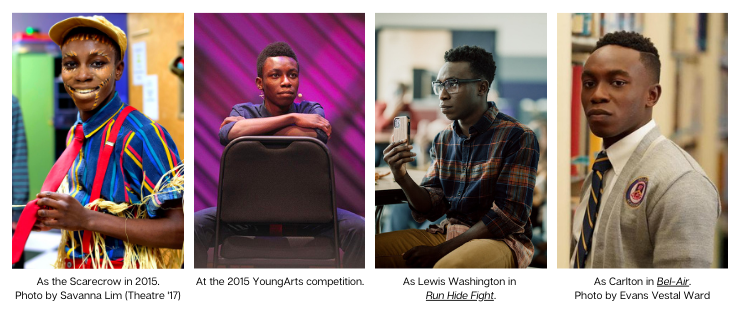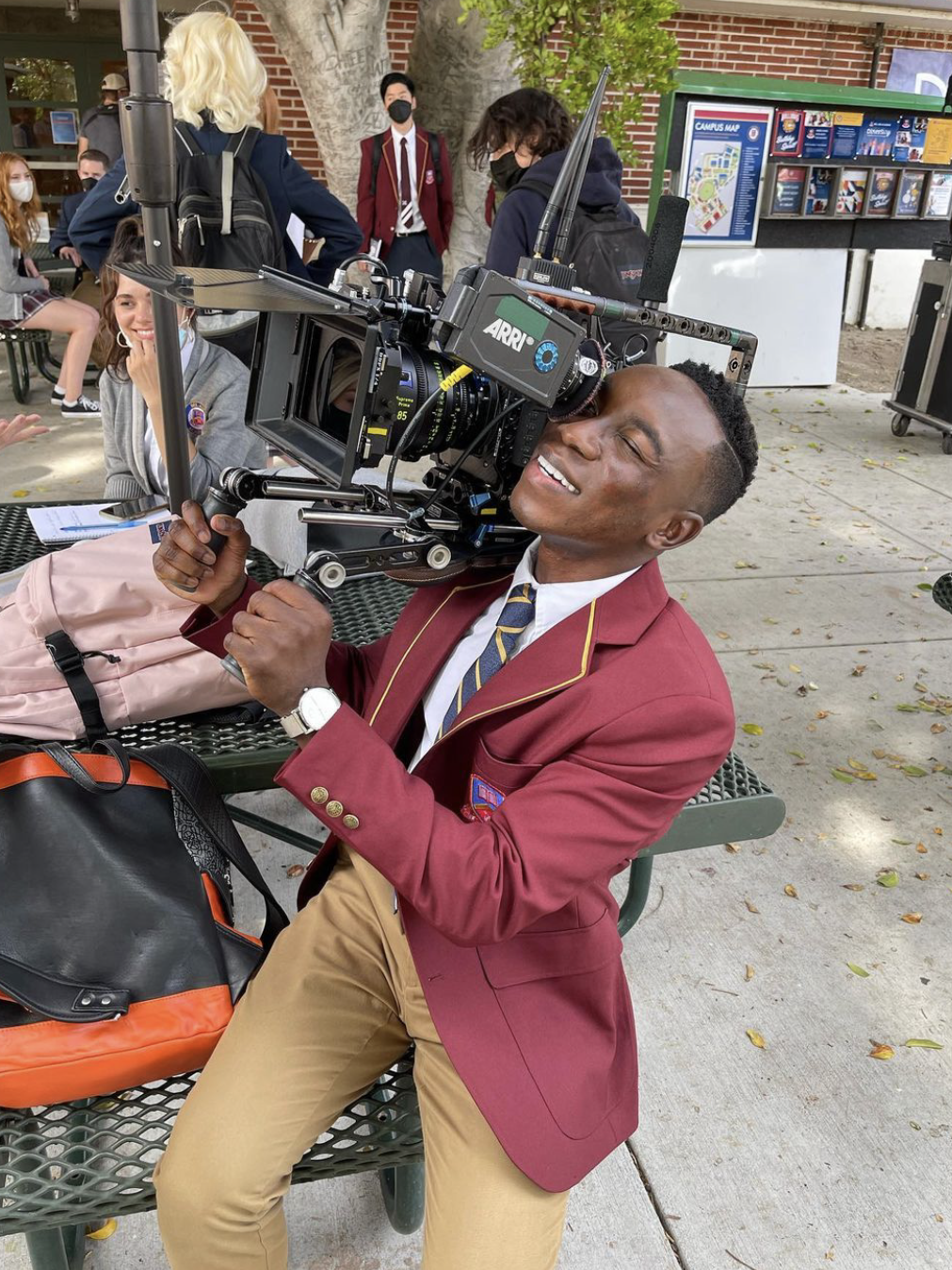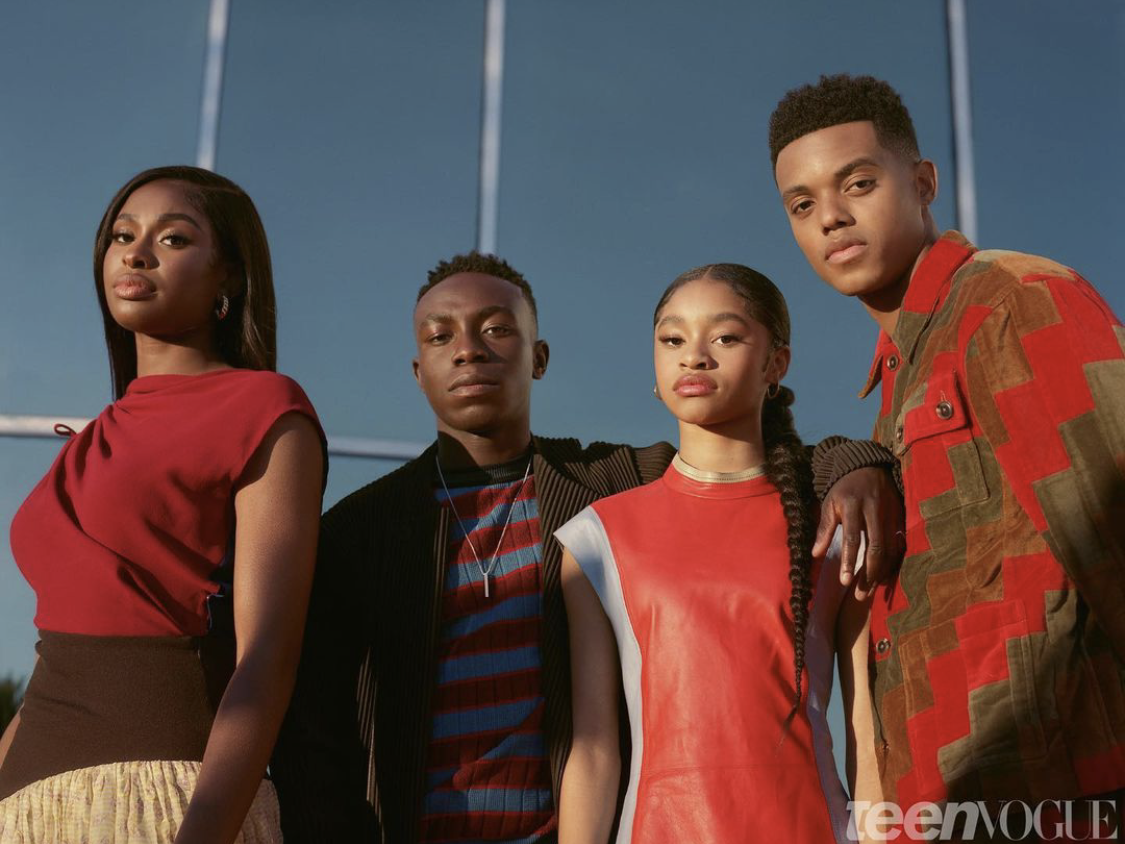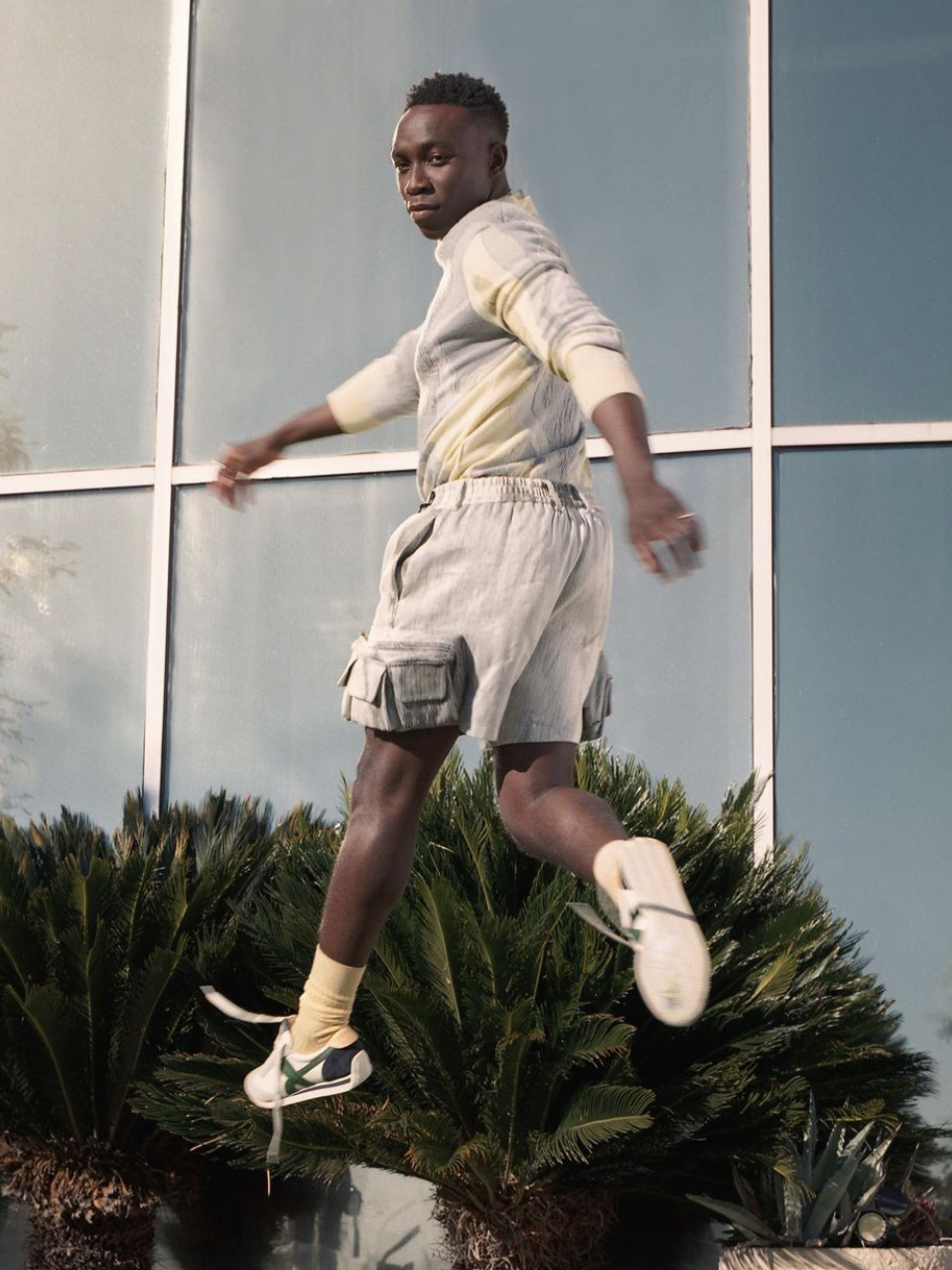
Picture it: America, 1939. The world is a vision in sepia. Not exactly black and white. A little dusty in places. The devastating effects of economic and environmental disaster in an already fragmented and segregated society are evident and World War II is steadily approaching. Then, somewhere, a switch is flipped and, within milliseconds, the eyes and mind conspire to create a vibrant technicolor dream. Blackness colors our world in this same strange, magnificent, immediate way.
Before Judy Garland had even entered the chat, L. Frank Baum’s classic children’s story, The Wonderful Wizard of Oz, had already given rise to thirteen sequels (also by Baum), several stage versions, and five films. However, when William F. Brown and Charlie Smalls premiered their super soulful adaptation, The Wiz, starring 19-year-old Stephanie Mills, there was an undeniable freshness to it. Like a brand new day. In 1975, the original Broadway production took home seven Tony Awards including Best Musical and Best Original Score. Despite the show’s success with Mills as its leading lady, Motown Productions (now de Passe Entertainment) traded her for Diana Ross in their 1978 film version of The Wiz. Despite the success Ross had previously awarded them with Lady Sings the Blues (1972) and Mahogany (1975), The Wiz did not receive the same glowing reviews. Thanks to Quincy Jones, the soundtrack actually generated more sales than tickets.
By the time The Fresh Prince of Bel-Air made its television debut in 1990, shows like The Jeffersons, Good Times, The Cosby Show, and Family Matters had already primed audiences for a closer look at the Black American family; but, this family was different. A rarity. While the Huxtables and the Jeffersons would have been considered upper middle class at best, the Bankses–and their butler, Geoffrey–were truly living in the lap of luxury. Besides serving as a catalyst for non-fictional Will Smith’s acting career and affluence, the show often touched on prejudice and classism within the Black community, challenged played-out stereotypes perpetuated by Hollywood, and highlighted some of the many ways Blackness permeates pop culture.
Ask anyone. The Wiz and Fresh Prince are both high on the mandatory viewing list for anyone trying to obtain (and keep) a race card of the black variety. For Nigerian-American actor, singer, and music producer, Olly Sholotan (Theatre ‘15), getting to support future generations through his involvement with The Wiz Emerald City Experience is a full circle moment as it marks seven years since he played the role of the Scarecrow in Kinder HSPVA’s 2015 production of The Wiz (as a graduating senior) and one year since the season premier of Morgan Cooper’s Bel-Air.
Olly Sholotan looks back fondly on the three formative years he spent at HSPVA, a place he describes as somewhat of an “artistic cocoon.” He says it “took this young kid who was a little bit uncomfortable in his skin and uncomfortable in figuring out who he was, and turned him into an artist that knew what direction he wanted to go in life.” When asked to elaborate on any particularly affirming moments, he mentions being honored as a YoungArts finalist in theater and describes an interaction he had with Yvonne Phillips Dupree, director of PVA’s 2014 Black History Month production, Dreamgirls. ”I’ll never forget Ms. Dupree because we were in rehearsal and there was just one day that she was like, ‘Olly, here’s the thing… you have it. Just be. Just do it. Just do the thing,” and I remember thinking, ‘I DO have it!’” Sholotan also credits Cynthia Ogden, a longtime HSPVA Theatre faculty member, with playing a huge role in his development as an artist.
As a music lover who grew up obsessing over Michael Jackson, having an opportunity to play the Scarecrow–as Jackson did in the film–was monumental for Sholotan. “It feels like [one of] those moments that if I saw it in a TV show… I’d be like ‘that’s unrealistic.’ It was such an honor,” he says. Though he was a little disappointed at not being able to sing “You Can’t Win,” the groovy crow anthem that was an add-on for the movie, it did very little to overshadow his excitement. In 2015, the last time PVA did The Wiz, it was directed and choreographed by Brooke Barnes-Meeks (Dance ’97), music directed by Warren Sylvester (Instrumental ’11), and featured future Broadway stars, Samantha Williams (Theatre ’16) as Dorothy and Fernell Hogan (Theatre ’15) as The Tin Man. Sholotan explains that “in shows that are so unapologetically Black like that, the singing style is different; to a certain extent, the acting style is different. For me, I never necessarily felt like I fit into any sense of traditional or classical musical theater framework […] This wasn’t told to me in high school, but I’ve been told–even professionally–that I don’t really fit into classical shows and there’s kinda no place for me there.”
“Getting the chance to do ‘Dreamgirls’ and ‘The Wiz’ and ‘Hairspray!’ and sing Black music like a Black man? I didn’t get those opportunities anywhere else.”
In thinking about these shows and their effect on his experience at PVA, Sholotan also notes this unspoken feeling that the all-school musical and the Black History Month show were in competition and that you “kind of had to choose which to be a part of.” Ultimately, this situation taught him to always maintain a sense of ownership over his work and to stand “ten toes down” behind whatever he did artistically. This was certainly helpful to keep in mind when he signed on to play Carlton in Cooper’s dramatic retelling of Fresh Prince.

“There’s something about walking in the shoes of the legends that came before you that feels… you know, there’s a weight that comes with it,” Sholotan admits.
“But I don’t like to think of it as a weight. I really like to think of it as a mantle that I get to put on.”
When Bel-Air premiered last year, fans of the original show were not-so-pleasantly surprised to discover that the Carlton envisioned by Cooper was not the goofy, Tom Jones-loving, preppy-argyle-sweater-wearing Carlton originally portrayed by Alfonso Ribeiro. Sholotan and Cooper’s Carlton is–in stark contrast–manipulative, anxiety-ridden, and his relationship with Will is noticeably more strained. This treatment of such a well-loved character generated a rather impassioned response from the virtual peanut gallery–akin to the backlash Fresh Prince received for recasting Aunt Viv”–but, despite all of the negative attention, the show was approved for a second season and Sholotan has remained largely unbothered by the haters. “I think the enemy of excellence is apathy,” he says, “so, the worst thing that could have happened after the show was ‘yeah, you know, eh, it’s fine.’ The fact that there are a lot of strong feelings? In a way, I’ll take it.” Carlton may not have any difficulty being “seen green” in front of his white peers, but he still struggles with feelings of inadequacy that are triggered by the presence and rising popularity of his charming cousin, a West Philly jawn from around the way. Though his futile attempts at coping are frustrating to witness, it’s easy to empathize with his predicament and relate to his sense of loneliness.


“It is so interesting to me how fish-out-of-water stories, not only are just so ubiquitous in media, but also touch something in the Black community specifically. In a lot of ways, for Black people and people of color to experience social upward mobility or financial upward mobility, we have to be fishes out of water. I can’t even count the amount of times I’ve been the only Black person in the room, and I think that every aspirational Black person has experienced that. The same thing that Dorothy experiences being a fish out of water going to Oz and being like, ‘Oh my God, this is overwhelming and incredible,’ is the same thing Will experiences being in Bel-Air. It’s the same thing I’ve experienced being in Los Angeles.” After World War I and well into the 1970s, millions of disillusioned Blacks believed that the key to upward mobility was, literally, physically moving north to industrial cities (resembling that of the fictional Emerald City). For Sholotan, moving west to earn his bachelors degree from the University of California – Los Angeles (UCLA) School of Theater, Film and Television seems to have done the trick.
By the time Sholotan graduated from UCLA in 2019, he had already filmed an episode of All American (a CW drama). Shortly after, he shot his first full-length film, Run Hide Fight, which had its world premier at the 2020 Venice International Film Festival. When he wasn’t in class or on set, he utilized his time learning how to write, produce, mix, and master his own songs for release through Lamintin Records, his independent label. “A lot of it was sort of born out of impatience and not wanting to wait for other people to give me permission to make my art. I always say that in my acting, I kind of get to work through other characters’ brains, but in my music I get to work through my brain and figure out my thoughts.” Music is such a big part of his life, he actually creates playlists for all of his characters. “It’s a combination of what I’m listening to at the time but also just things that feel like that character’s essence, feels like that character’s rhythm, feels like their texture. So, as much as the music does help for the more emotional scenes of like, ‘Okay, must be sad. Get sad now,’ it also really helps for ‘Hey, this character is walking through the school hallway and they just heard the best news ever. How do they walk? What tempo do they walk? What type of bounce do they have?’ For me, music is kind of the first step into all of those questions.” He denies having dreams of becoming a music supervisor but confirms my suspicion that he shares song suggestions with Bel-Air’s production team.
Keeping in mind that he previously expressed admiration for Jeymes Samuel and his Black western film, The Harder They Fall (2021)–for which Samuel directed, wrote the screenplay, and composed the film score–I inquired about his plans for the future. “Man proposes, God disposes,” he begins. “I think something I’m working on, personally, is just learning to surrender myself to wherever life takes me. And so… I try to make sure that the work I do is descriptive, not prescriptive. I never want to sit there and be like, ‘Okay, my goal is to tackle as many so-and-so-type of projects as I can.’ It’s just like, you know, whatever speaks to me and whatever gravitates towards me is whatever will happen.”
“So, the answer of ‘what’s next?’ Listen. I don’t know, man, but I think it’s gonna be exciting. Only time will tell.”
Perhaps one of the most powerful messages The Wiz teaches us is the fact that you don’t need anyone to validate your worth (although there may be times when you need help changing perspectives). The Wiz Emerald City Experience is not about showcasing anyone’s wealth or trendiness. It’s about doing what we can to normalize a mindset of abundance so that the dreams of our children can surpass the heavens and take root among the stars. “The point—I think—of being an artist,” Sholotan asserts, “is to create spaces and to knock down doors that you had to knock down so that the future generation doesn’t really have to.” By celebrating the unique lens through which Black creatives interpret the world, raising scholarship funds for PVA’s Black students, and reiterating the importance of believing in yourself, the HSPVA Black Alumni Network is attempting to do just that. “As artists, it’s so important that we never tell ourselves ‘no.’ It’s about saying ‘yes, yes, and yes,’ and even when you get knocked down, you get back up again because the most successful people aren’t necessarily the best. They’re not necessarily the prettiest or the smartest or the tallest or the whateverest, they’re just the ones that got back up and never stayed laying down.”

